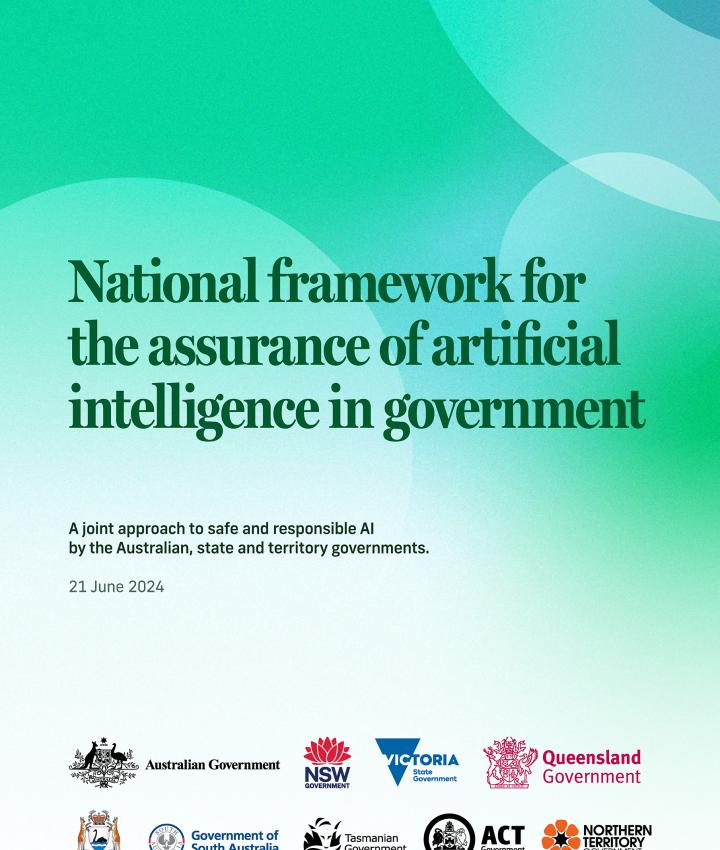AI Assurance in medical imaging.
Client
State Government Health Department
Industry
AI & Public Sector Hospital and Health Services
Our Role
Delivery of a tailored AI Assurance review to complement a traditional Gateway Assurance review
Services
AI Assurance
Overview.
The Artificial Intelligence (AI) in medical imaging project is a pioneering digital health initiative led by a major Australian state government Hospital and Health Service (HHS) to explore the use of AI in radiology. The project aims to enhance clinical accuracy, improve reporting turnaround times, and reduce diagnostic backlogs by combining the human expertise of radiologists with cutting-edge AI-driven diagnostic support tools.
Following a recent formal review of the medical imaging services, the HHS identified challenges in turnaround times and radiologist capacity. In response, the organisation established the AI in medical imaging project to pilot and evaluate AI-assisted diagnostic technologies for chest x-rays and computed tomography brain scans.
The initiative was designed and delivered in collaboration with the Department’s eHealth division and the AI vendor, leveraging the Health Department’s statewide digital infrastructure to assess AI’s role in clinical decision support.
As one of the first health sector projects in the state to apply structured AI Assurance, the initiative aligns directly with the National Framework for the Assurance of Artificial Intelligence in Government, ensuring responsible, transparent and ethical AI implementation.
Requirement.
To ensure confidence in investment decisions and readiness for implementation, PM Solutions conducted an independent AI Assurance review. This review assessed the project’s governance, technical readiness, and compliance with procurement, ethical and safety standards prior to contract award.
PM Solutions’ AI Assurance approach — based on the National Framework for the Assurance of Artificial Intelligence in Government and the Government’s mandated Assurance Framework — was designed to validate that the AI solution was not only technically and clinically feasible, but also explainable, trustworthy, and aligned with human-in-the-loop principles central to medical decision-making.
The tailored PM Solutions review focused on:
- evaluating the soundness of the business case and delivery strategy;
- assessing stakeholder engagement and governance maturity;
- ensuring that AI governance, data security, and information assurance obligations were understood and embedded; and
- providing clear recommendations to strengthen readiness for service and sustainable benefit realisation.
Challenges.
Introducing AI technologies into clinical environments presents complex assurance and governance challenges. For this project, key challenges included defining AI roles within established medical workflows, ensuring regulatory compliance, and maintaining clinician trust in machine-learning outputs.
The project required close coordination between the HHS, the eHealth division, and multiple technology vendors, including radiology systems providers and AI specific vendor. Aligning technical integration across existing Radiology Information Systems and Picture Archive Communication Systems demanded collaborative planning and resource prioritisation, particularly from constrained technical teams.
AI governance was also emerging as a new organisational discipline. The HHS commenced the establishment of an AI Governance Committee to oversee ethical, safety, and compliance dimensions of AI use in healthcare. Managing this evolving governance landscape while maintaining delivery pace required adaptive leadership and agile assurance.
Additionally, the project team faced challenges in defining the critical path for implementation, finalising pilot contract terms, and sequencing key pre-implementation tasks such as cybersecurity risk assessment (ISRAP) and research evaluation protocols.
Outcomes.
The tailored AI Assurance review, delivered by PM Solutions, confirmed that the project’s business case, governance, and procurement processes were robust, with successful delivery considered probable — reflected by an acceptable overall delivery confidence rating.
PM Solutions’ independent assessment validated the project’s strategic alignment, clinical relevance, and adherence to national and state assurance frameworks for responsible AI deployment. The review provided numerous targeted recommendations addressing key aspects such as:
- establishing a technical reference group and AI governance committee;
- defining non-production and future-state AI architectures;
- conducting an AI-focused risk workshop; and
- aligning contract terms and implementation milestones with the full pilot lifecycle.
These actions have positioned the HHS to deliver a well-governed and ethically assured pilot of AI enabled diagnostic support tools. The review also set a precedent for the application of the National AI Assurance Framework within the Government’s health system, demonstrating how structured, independent assurance enables government agencies to adopt AI responsibly and transparently.
By embedding assurance from the outset, the HHS is strengthening clinician confidence, improving patient safety, and establishing a scalable model for future AI initiatives across the statewide Health Department.
